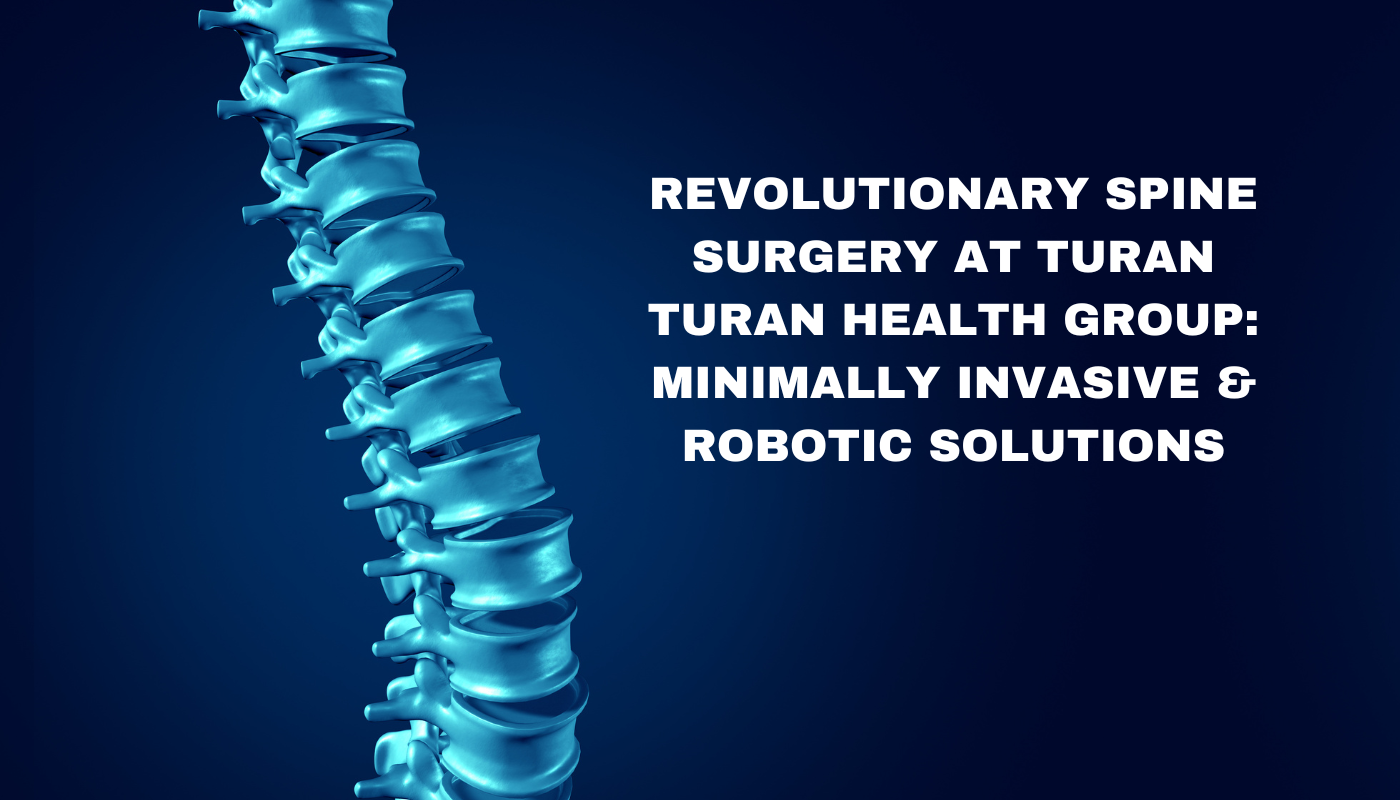In recent years, the field of spine surgery has witnessed remarkable advancements, particularly with the introduction of minimally invasive spine surgery (MISS). This innovative approach offers a plethora of benefits over traditional spine surgeries, including shorter recovery times and reduced risk of complications.
Amidst these advancements, Turkey has emerged as a leading destination for patients seeking MISS, thanks to its state-of-the-art medical facilities and world-renowned surgeons. This blog post delves into the benefits of undergoing minimally invasive spine surgery in Turkey, shedding light on why it’s becoming a hotspot for medical tourists seeking spine health solutions.
Table of Contents
Understanding Minimally Invasive Spine Surgery
Minimally invasive spine surgery (MISS) is a surgical approach aimed at treating spinal disorders with less tissue disruption compared to traditional open surgery. It utilizes advanced surgical techniques, specialized instruments, and imaging guidance to access and treat spinal conditions through small incisions.
Here’s a breakdown of key aspects of minimally invasive spine surgery:
Small Incisions: Instead of a large incision, MISS involves making one or more small incisions, typically less than an inch in length. These smaller incisions cause less trauma to the surrounding muscles and tissues, leading to reduced postoperative pain and faster recovery.
Imaging Guidance: Surgeons often use fluoroscopy (real-time X-ray) or intraoperative navigation systems to visualize the spine during surgery. This helps them accurately navigate through complex spinal anatomy and perform the procedure with precision.
Muscle-Sparing Techniques: MISS aims to minimize disruption to the muscles and soft tissues surrounding the spine. Specialized instruments and techniques allow surgeons to access the spine while sparing muscle tissue, reducing the risk of muscle damage and postoperative muscle weakness.
Specific Procedures: Minimally invasive techniques can be used to treat a variety of spinal conditions, including herniated discs, spinal stenosis, degenerative disc disease, spinal tumors, and spinal deformities such as scoliosis. Common procedures include discectomy (removal of a herniated disc), laminectomy (removal of part of the lamina to relieve pressure on the spinal cord or nerves), and spinal fusion.
The Benefits of Minimally Invasive Spine Surgery
Minimally invasive spine surgery (MISS) offers several benefits compared to traditional open spine surgery. Here are some of the key advantages:
Reduced Tissue Damage: Minimally invasive techniques involve making smaller incisions and using specialized instruments to access the spine. This results in less disruption to the muscles, ligaments, and other soft tissues surrounding the spine. As a result, patients typically experience less tissue damage, leading to reduced postoperative pain and faster recovery.
Less Blood Loss: The smaller incisions and precise surgical techniques used in minimally invasive spine surgery result in less blood loss during the procedure. This reduces the need for blood transfusions and lowers the risk of complications associated with significant blood loss.
Faster Recovery: Because minimally invasive spine surgery causes less trauma to the body, patients often experience faster recovery times compared to traditional open surgery. They may spend less time in the hospital and require less postoperative pain medication. Many patients are able to return to their normal activities sooner after undergoing minimally invasive procedures.
Smaller Scars: The smaller incisions used in minimally invasive spine surgery result in smaller scars compared to traditional open surgery. This can improve cosmetic outcomes and reduce the risk of keloid formation or other scar-related complications.
Lower Risk of Infection: Minimally invasive techniques typically involve shorter surgical times and reduced exposure of the surgical site to external contaminants. As a result, there is a lower risk of surgical site infections compared to traditional open surgery.
Preservation of Spinal Stability and Motion: In some cases, minimally invasive spine surgery allows for the preservation of spinal stability and motion. For example, certain minimally invasive fusion techniques use specialized implants and instruments to stabilize the spine while preserving as much natural motion as possible. This can lead to better long-term outcomes for patients.
Improved Accuracy: Minimally invasive spine surgery often incorporates advanced imaging technologies such as fluoroscopy or intraoperative navigation systems. These technologies allow surgeons to visualize the surgical site in real-time and navigate with greater precision, leading to more accurate placement of implants and better surgical outcomes.
Why Choose Turkey for Your Spine Surgery?
Turkey has become increasingly popular as a destination for medical tourism, including spine surgery, and there are several reasons why individuals might choose Turkey for their spine surgery:
High-Quality Healthcare Facilities: Turkey boasts modern and well-equipped hospitals and clinics that adhere to international standards of quality and safety. Many hospitals in major cities like Istanbul, Ankara, and Izmir are accredited by international organizations such as Joint Commission International (JCI) and offer state-of-the-art medical technology and facilities.
Skilled and Experienced Surgeons: Turkey is home to highly trained and experienced spine surgeons who often receive their education and training from reputable institutions around the world. Many surgeons in Turkey specialize in minimally invasive spine surgery techniques, providing patients with access to advanced and effective treatment options.
Cost-Effective Treatment: Compared to Western countries, medical procedures in Turkey, including spine surgery, tend to be more affordable. This cost-effectiveness makes Turkey an attractive option for individuals seeking high-quality medical care without breaking the bank. Even when factoring in travel and accommodation expenses, patients may still find that undergoing spine surgery in Turkey is more economical than in their home countries.
No Waiting Lists: In some countries with public healthcare systems, patients may face long waiting times for elective surgeries, including spine surgery. In Turkey, private hospitals often offer prompt scheduling for procedures, allowing patients to undergo treatment without unnecessary delays.
Multilingual Healthcare Staff: Many healthcare professionals in Turkey, especially in popular medical tourism destinations like Istanbul, speak English and other languages fluently. This facilitates communication between patients and medical staff, ensuring that patients feel comfortable and well-informed throughout their treatment process.
Tourism Opportunities: Turkey’s rich history, vibrant culture, and stunning landscapes make it an attractive destination for medical tourists. Patients and their companions can take advantage of their time in Turkey to explore famous landmarks, enjoy delicious cuisine, and immerse themselves in the local culture, turning their medical trip into a memorable experience.
Comprehensive Medical Services: In addition to spine surgery, Turkey offers a wide range of medical services, including diagnostics, rehabilitation, and follow-up care. Patients can access comprehensive medical care under one roof, making the treatment process more convenient and streamlined.
Ease of Travel: Turkey is well-connected to major cities around the world via air travel, with several international airports serving as entry points for medical tourists. Additionally, the Turkish government has implemented measures to facilitate medical tourism, including visa facilitation and streamlined processes for obtaining medical visas.
Procedure of MISS in Turkey
The procedure for Minimally Invasive Spine Surgery (MISS) in Turkey typically involves the following steps:
- Consultation and Evaluation: Schedule a consultation with a spine surgeon in Turkey to discuss your medical history, symptoms, and diagnostic imaging results. The surgeon will evaluate your condition and determine if you are a suitable candidate for MISS.
- Pre-operative Preparation: Before the surgery, you’ll undergo pre-operative tests and evaluations to ensure you’re in optimal health for the procedure. Your surgeon may provide specific instructions regarding medications, diet, and lifestyle changes leading up to the surgery.
- Anesthesia: On the day of the surgery, you’ll be administered anesthesia to ensure you are comfortable and pain-free during the procedure. The type of anesthesia used (general or local) depends on the specific surgery and your medical needs.
- Incision and Access: The surgeon makes small incisions, typically less than an inch in length, to access the spine. Specialized instruments and imaging guidance, such as fluoroscopy or intraoperative navigation, help the surgeon precisely navigate to the affected area.
- Spine Surgery: Using minimally invasive techniques, the surgeon performs the necessary spinal procedure, such as discectomy, laminectomy, or spinal fusion. The surgeon may remove damaged tissue, decompress nerves, stabilize the spine, or address other spinal issues based on your diagnosis.
- Closure of Incisions: After completing the surgical procedure, the surgeon closes the small incisions with sutures or adhesive strips. The smaller incisions result in minimal scarring compared to traditional open surgery.
- Recovery and Rehabilitation: Following surgery, you’ll be monitored in the recovery area to ensure your condition is stable. Depending on the complexity of the surgery and your overall health, you may be discharged the same day or require a short hospital stay for observation.
- Post-operative Care: Your surgeon will provide instructions for post-operative care, including pain management, wound care, activity restrictions, and follow-up appointments. Physical therapy or rehabilitation may be recommended to aid in your recovery and optimize outcomes.
- Follow-up Appointments: Attend scheduled follow-up appointments with your surgeon to assess your progress, address any concerns or complications, and monitor your recovery. Your surgeon will determine when you can gradually resume normal activities based on your healing process.
- Long-term Management: After recovering from surgery, continue to follow your surgeon’s recommendations for long-term spine health, which may include lifestyle modifications, exercise, and periodic check-ups to monitor your spinal condition.
Preparing for MISS in Turkey
Preparing for Minimally Invasive Spine Surgery (MISS) in Turkey involves several key steps:
Research and Consultation: Research reputable hospitals and spine surgeons in Turkey, considering factors such as experience, credentials, and patient reviews. Schedule a consultation with the chosen surgeon to discuss your medical history, treatment options, and expectations.
Medical Records and Tests: Gather your medical records, including imaging scans (MRI, CT scans) and any relevant test results. Your surgeon may request additional tests or imaging studies to assess your condition and plan the surgery.
Travel Arrangements: Make travel arrangements to Turkey, including flights, accommodation, and transportation. Consider factors such as visa requirements, travel insurance, and accessibility to the hospital or clinic where you’ll undergo surgery.
Financial Planning: Obtain cost estimates for the surgery, including surgical fees, hospital charges, anesthesia, and post-operative care. Make financial arrangements, considering payment options and potential insurance coverage or reimbursement.
Pre-operative Instructions: Follow any pre-operative instructions provided by your surgeon, such as fasting before surgery, discontinuing certain medications, and avoiding smoking or alcohol consumption.
Pack Essentials: Pack essential items for your stay in Turkey, including comfortable clothing, toiletries, medications, and any medical devices or aids you may need. Consider bringing a companion to provide support during your recovery.
Communication and Language: Ensure effective communication with healthcare providers by confirming that they speak your language or arranging for translation services if needed. This ensures that you fully understand the procedure, risks, and post-operative instructions.
Post-operative Care Plan: Discuss post-operative care plans with your surgeon, including follow-up appointments, rehabilitation, and any restrictions or precautions to take during the recovery period.
Ready to experience the benefits of Minimally Invasive Spine Surgery in Turkey? Take the first step towards a pain-free life by scheduling your consultation with a skilled spine surgeon today.



